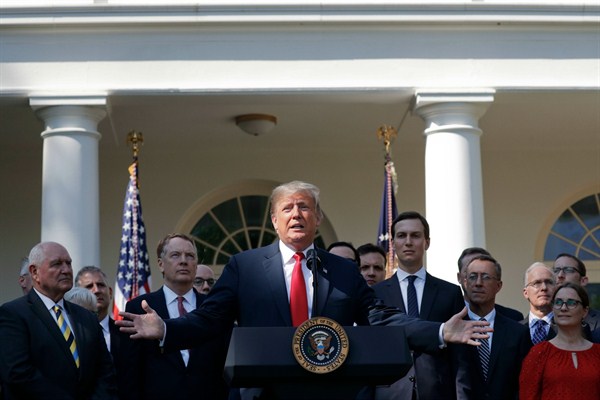Deadlines can be useful in negotiations since they often force sides to act. If there is a difference in the intensity of interest in reaching an agreement, however, leverage shifts to the party less desperate to get a deal. That is evident in the now-successful effort to renegotiate the North American Free Trade Agreement.
Canada clearly wanted to remain part of the deal. But up to the end, Canadian negotiators behaved as though the deadline was not as hard as their American counterparts insisted. President Donald Trump seemed to badly want an agreement that he could tout as a win before the midterm elections—and that worked in Canada’s favor. Canada’s position was also bolstered by those in Congress and the U.S. business community who insisted that a bilateral agreement with Mexico was not good enough and not what Congress had authorized the Trump administration to negotiate.
Absorbing the hundreds of pages of text in the new United States-Mexico-Canada Agreement, or USMCA—otherwise known as the revised NAFTA—will take a little time. But there is enough information already to assess who won and who lost on a few key issues. First and foremost, all three economies are, broadly speaking, winners. Two and a half decades of NAFTA mean that supply chains across a range of sectors are now deeply integrated. Disrupting those relationships would have entailed high costs for workers and consumers across all three countries. Closing the deal avoids the disruptions that either no agreement or a bilateral agreement just between the U.S. and Mexico would have entailed.

